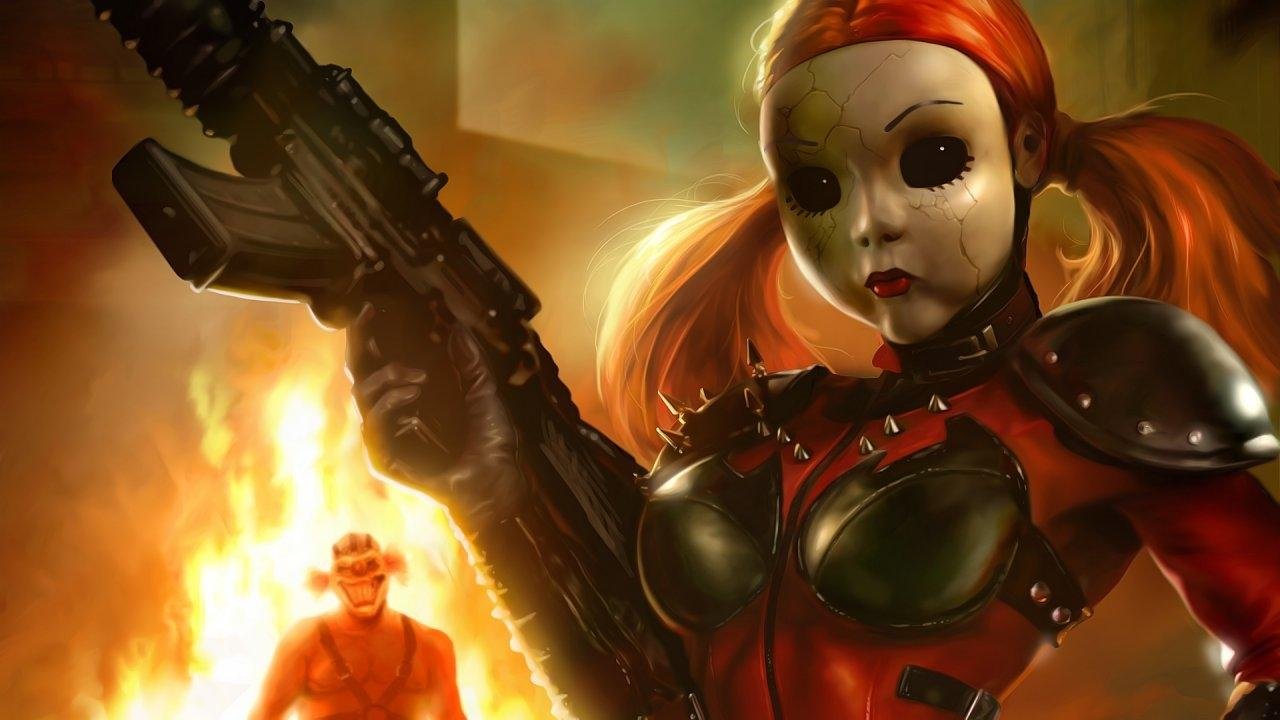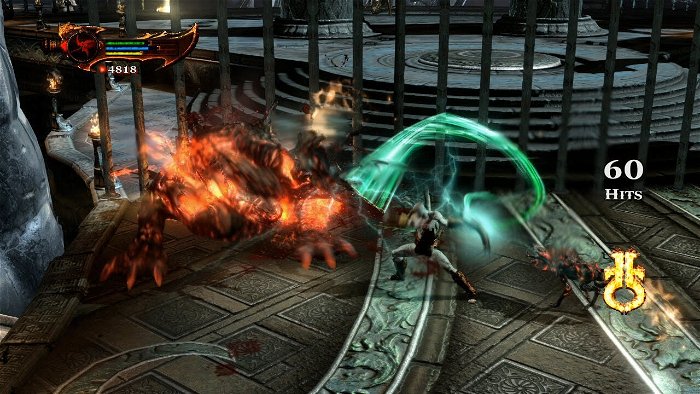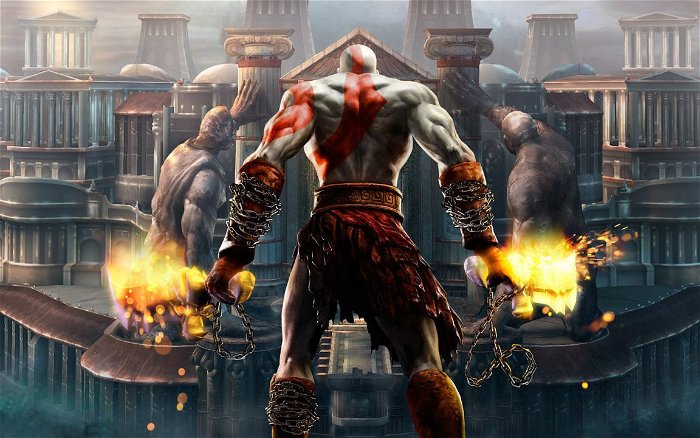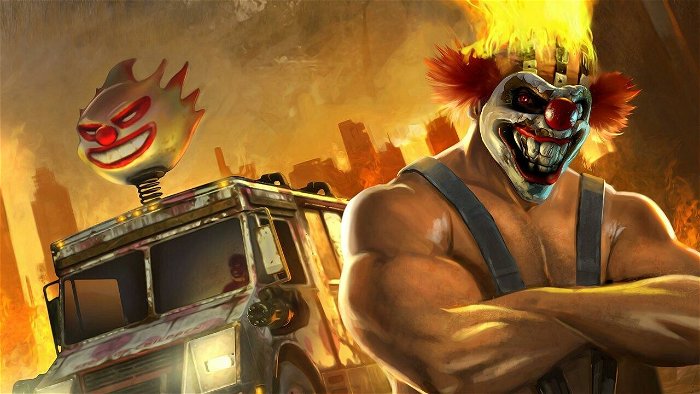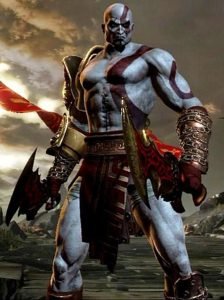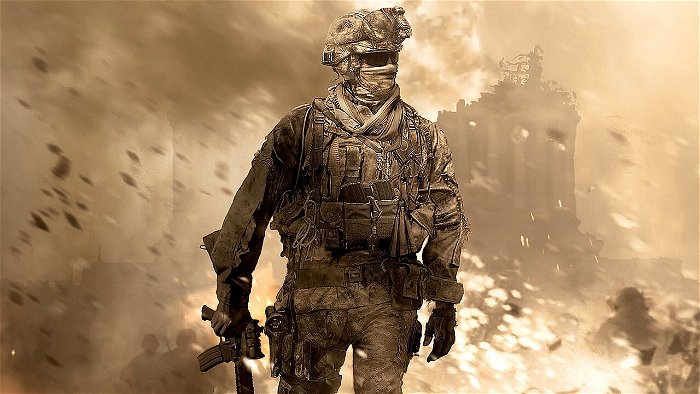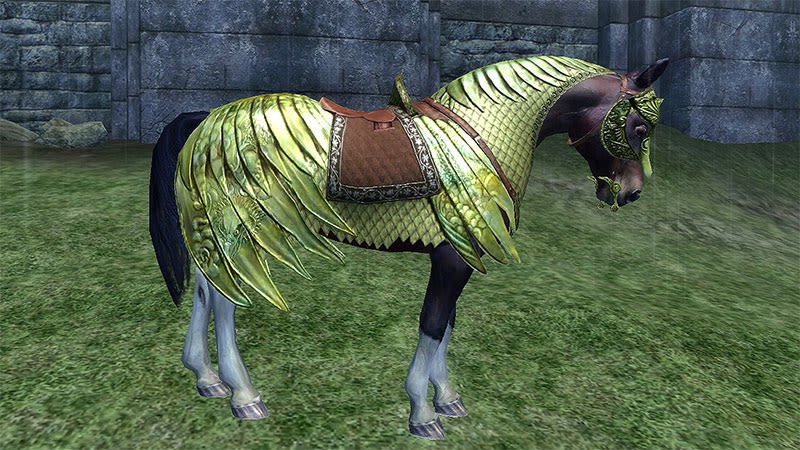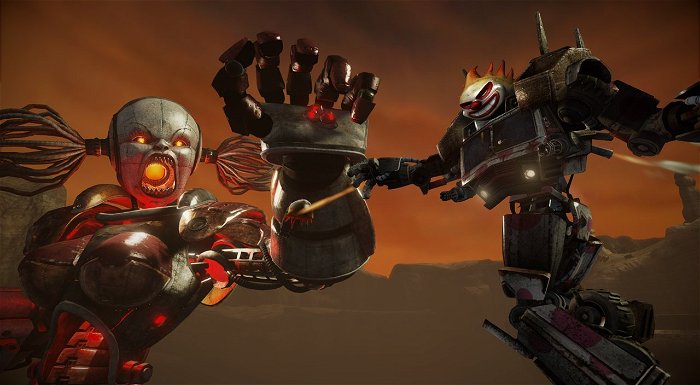In this second part of a three part interview, David Jaffe discusses his career and his views on the games industry.
CGMagazine: What’s the situation at Eat, Sleep, Play now? Has the move to a bigger budget game affected operations?
David Jaffe: It really hasn’t. We’ve hired a few more people, but we’re not very big, we’re about 35 to 40. We have a great, close relationship with Sony and Sony Santa Monica. I would 70% of the people on the new Twisted Metal have been on one, two or Black, a good percentage of that 70% have been on all of them. It’s still the same group of guys, there’s a couple of women, but it’s mainly guys, and it feels like a big f**king garage band to me. It’s fun, they’re fun to work with, and I still work in San Diego, and they work in Utah. We butt heads all the time, but I think we do great work, and I’m grateful that they’ll have me. They’re a fun group.
CGM: For you personally, have there been any changes in the way you look at games since you transitioned from the strictly creative side to running your own studio?
David Jaffe: Well, the first thing to be totally clear on is, I co-founded and co-run Eat, Sleep, Play. The day to day business is really in Scott Campbell’s hands. Not in terms of big decisions, we both work on that, but I’m not a manager. I don’t worry about… morale. I’m terrible at that. I’ve tried that, and let’s just be perfectly clear that the capacity of my job is high level strategic business thinking, game design and game direction, I’m not managing people. Scott does all of that, Scott’s a genius at that, as well as game design with me. But in terms of what I learned on the business side… I think the biggest thing that I’m trying to get my head around is… balancing the artistic side with business side.
CGM: That’s a tricky thing.
David Jaffe: We’re working very hard to maintain our T-rating, and there’s a lot of people that are like “Grr! We want the M!” And look, I love dark, twisted s**t, okay, so I like M ratings too. But I also look at it, and it’s not just the business side of selling more copies. It’s also from the standpoint of if we go out with a T, our split screen becomes more of a viable mode. Because there’s a lot of younger people who will be playing it with their parents, their brothers. If we go out with a T, our online community becomes more robust, because there’s more people playing the game. We get better marketing at Walmart, Best Buy… if we go out with a T rating, we’re going to probably come out… I don’t know this, but I’m guessing by the time we launch, there might be another PS3 price drop. All of these things contribute to our creative decisions in order to maintain, in this case, our T rating.
I look around, and I’d like to make a big f**king hit. God of War was a big f**king hit, and it felt really good. I’d like to learn how to do that on a more consistent level. So there’s definitely that thinking that goes into it, and also trying to balance that with “don’t negate the purity of the vision.” And in the case of Twisted Metal I don’t think we are. I think if we were trying to make God of War and make that a T, then I’d go “Okay, that doesn’t fit.” The only M rated TM has been TM Black, and that honestly, and I’ve said this to the press before, that was our least successful Twisted Metal. Critically it was our most successful, but sales-wise, it did very poorly compared to the other Twisted Metals, even the ones that were rated really badly. So that’s where my head is when it comes to Twisted Metal and the business decisions we make every day right now.
CGM: What about the studio’s direction? In the past, you’ve said you wanted to focus on smaller, less life-consuming, AAA titles, after the ordeal that was God of War, but a new Twisted Metal is definitely in that same league.
David Jaffe: I don’t think anymore that we think about it. We just do what’s cool on a game to game basis. God of War took a lot out of me. There were a lot of things going on personally; I ended up getting divorced after God of War, I had my second kid after God of War. But now I’m in a place where, after Twisted Metal, I would love to do another big, giant, epic, story-based game. And I think that will be in the cards, sometime. I think you pretty much just follow your passion. And I still very much believe in the downloadable space. I would love to do downloadable stuff, be it small, little mechanics-based games, as well as more narrative based games, that are still really big, but they’re shorter.
I’d love to do a $19 game designed to be finished in five hours and sold exclusively on the PSN, and it’s got a lot of ambition. But it’s also meant to be finished in a weekend. I’m absolutely still interested in that. But you have to do one game at a time, and then the next thing will come into play. So it’s not like we have some five year plan for Eat, Sleep, Play, it’s more like… “F**k dude, we gotta’ make Twisted Metal good,” and that’s all we’re focused on now.
CGM: So if you were able to travel back in time to 1993 and meet up with young David Jaffe, working on Mickey Mania, what would you tell him, knowing what you know now after over 15 years of highs and lows in the industry?
David Jaffe: Oh my goodness. That’s a good question…
CGM: I think everyone wants to know the answer to this one.
David Jaffe: One the one hand, I look at it as I’m one of those people that says “I don’t have a lot of regrets,” just because you are who you are because of the mistakes and the successes you’ve had in the past. But assuming that mentality wasn’t available to me, and we’re talking strictly games, not my social life…
CGM: No, that’s off the table.
David Jaffe: I would probably say… start a company a lot sooner.
CGM: Why’s that?
David Jaffe: Well, I grew up not having a lot of money. I went into Sony thinking it was very secure, and I did that needing to pay off a bunch of student loans from college. For me at the time, the idea of a financial check every few weeks meant the world. And it’s very scary to walk away from that. And I don’t think it was until I had enough success in my career that I felt “Y’know, I can walk away from that, and even if doesn’t go well, I can still take care of my kids and myself.” Because I’d had enough success that I could figure something out.
But you don’t know that at the beginning. You don’t know if you’re going to be good at it, especially if you’re talking about something like game design, which is intangible. It’s not like I’m a coder where I can show my code and say “Man, I write f**king Assembly language code, and it runs super duper fast.” Or I’m an artist and to anyone that looks at my stuff, it’s clear that I’ve got talent. Game design requires a lot of other support people around you in order to show if you know what you’re doing.
But I think looking back now, if I’d been much ballsier in career moves at the time… My bank account was very healthy, but it certainly could have been substantially healthier. But y’know, that’s okay, I’m learning now, I’m glad I have a company now. And I’m grateful for the years I had at Sony. We’re still working with those guys, I hope to always work with those guys, they’re awesome.
But that would be the main thing. Start a company. Don’t be so afraid.
CGM: Over the course of your career, what would you say have been influences on your work and thinking? Whether it’s a game, film or fiction?
David Jaffe: Atari 2600, Raiders of the Lost Ark. Spiderman comics, anything that Stan Lee’s ever done…
CGM: Not so much of a DC fan, huh?
David Jaffe: Well… as I’ve gotten older, I do like DC, but I grew up with Marvel. I grew up with Spiderman and Captain America, the Avengers… Of course I read Superman and Wonder Woman and stuff, but my favorite was always Marvel and Stan Lee. But as I’ve gotten older, I’ve gotten lot more into DC, because in a lot of ways the DC Universe is… it’s kind of richer. Even though I know Marvel gets all the credit for—and they did at the time—bringing in angst and human problems to the super hero genre, and I still think they do that better than DC, but there’s a… and I don’t mean this because Superman is iconic, but there’s something more… epic. And impactful, and meaningful in terms of… well, the stories of the Everyman is Marvel, which is great when you’re in the mood for that. And then there’s almost Greek mythology, which feels more like DC comics. The stories have such a grander scope, and I’ve begun to appreciate that more as an adult comic reader. But growing up, it was Marvel and it was Stan Lee, and I worshipped at the altar of Steven Spielberg. To an extent I still do. And then as I got a little older, Heavy Metal magazine was a really big influence.
I think there’s a part of me, my creative self, that is perpetually stuck at 14. And I think you see it in God of War, I think you see it in Twisted Metal… there’s just a lot of adolescent, power fantasy motifs. Whether it’s guns on cars or big, mega muscle-bound dudes with cool swords and sorcery things that get the girl. That really speaks to that moment where you’re on the precipice of being a kid and being an adult and all those things magically merge together. I think Heavy Metal was always… whether it’s the movie, which first introduced me to the magazine-
CGM: Oh, so it was the other way around for you.
David Jaffe: Well, the movie, that introduced me to the magazine and now I still read the magazine today, and I listen to the soundtrack all the time. I’ve been designing Twisted Metal to the soundtrack of Heavy Metal. I designed God of War to the soundtrack of Queen from Flash Gordon, so I think there’s a consistency in regards to that frozen time in my life between 12 and 15 and what pop culture was doing there. I kind of wonder “Will I ever advance beyond that?” I have a lot of contemporaries that talk about games as art, and emotional things, and more mature messages in games… and I think all of that is fantastic. I love deep movies and deep fiction sometimes. But for me I really like being in that [adolescent] space.
CGM: And about that Atari 2600…
David Jaffe: Oh, hell yeah!
CGM: Specific titles?
David Jaffe: I actually, in my office, have a really poorly done box frame, where I have the most influential games on the Atari, which really influenced me. I have Adventure, a game called Dodge ‘Em, Combat and Raiders of the Lost Ark. And those are major touchstones and moments for me growing up and design-wise, I think you can still see their influence in the stuff that I do today. Adventure and Raiders are God of War, Twisted Metal is Combat and Dodge ‘Em. So is Calling All Cars.
CGM: Did you actually manage to finish Raiders of the Lost Ark?
David Jaffe: Oh, I did. I was at a guy named Dick Myering’s birthday party, who after… God, this was like a 6th grade birthday party, he wanted to be called Richard after that, I dunno why… He was a really nice guy, and we stayed up all night long at his slumber party to finish Raiders. Absolutely, I finished it.
CGM: That’s impressive, it had a reputation back in the day for being pretty arcane to figure out.
David Jaffe: Yeah, this was obviously before the internet, so you had to talk to buddies, and you had to get Atari magazine… You had to call the hint line. It didn’t make any real sense. There was one thing were there were these mesas and you had to use your whip to jump from mesa to mesa, and guess which of the mesas the Ark was buried in. And… there was no way to actually figure it out. I loved it though. I loved it because it was Indy. And then Adventure… that was a great game… so yeah. Great, great times for sure.
CGM: What about critical versus commercial success? What’s the difference between a Halo or a Call of Duty that critics and gamers love, versus an Okami or a Beyond Good & Evil that critics love, but gamers don’t buy?
David Jaffe: Well, every medium has that, right? Movies have the same thing. Right now where I’m at in my career, I’m trying to make a conscious choice. I wanna’ figure out if I can make those… well, I’ve had hits. Certainly within first party many would say I’ve had big hits, but I want big motherf**king hits, you know what I’m saying? So I’m trying to study that, understand the landscape of that. I think a lot of it is honestly… You look at the work, and you can look at it as a piece of entertainment, and when you look at it that way, your goals change. Your goals become “How do I make the most people happy? How do I entertain them? How do I give them value for that $60 purchase?” In terms of modes, and customization. And I kind of looking at the landscape and seeing what people are responding to. And then you make choices that you fold into your game in order to appeal to the most people and make them happy. Certainly that mentality is shifting and filtering into the current Twisted Metal, like I said earlier with that T rating, and sort of how we’re making concessions with certain levels of violence in order to get it. It doesn’t mean we’re sacrificing the game or the spirit of the game at all. If we were, we wouldn’t be making this.
But, I think you can do both. When you’re talking about Okami, or Beyond Good & Evil or Shadow [of the Colossus] I think there’s a different driving force. There’s a desire to express something, and that becomes the most important thing. It doesn’t mean you can’t do both, but I think more often than not, one of the desires wins out over the other. And there are those rare cases when you can get both, but in games, more often than not, it does tend to be, more than film or books, an either-or proposition. From time to time in movies you’ll get a Schindler’s List which is critically acclaimed and it means a lot to a lot of people, and it makes tons of money. In games, it tends to be… You know, Modern Warfare 2 made a real noble effort to kind of build in some more… I don’t know if it was intended to be a political statement or an emotional statement, but… y’know, the “No Russian” level and whatnot…
So how I feel about it depends on what my goal is on any given day. I totally want to make an arty piece one day. I think that would be really fun. Can I use the interactive medium to express things that are different from the traditional things we expect in games? I’d love to try that. But right now, I’m much more interested in finding out, can I make creative choices that satisfy me and at the same time, put a smile on the most number of peoples’ faces?
CGM: Let’s back up and tackle that point you made. Arty piece? Where would you go with that?
DJ: Let me think. I haven’t thought about in a while. But honestly, there is a part of me… It’s not a bleak view of the world, because I’m pretty optimistic guy, but there is a kind of… “What’s the point?” There’s kind of a Sullivan’s Travels mentality to it… I guess every time I try to poke my head out of the shell, and do something artistic with my pad of paper before I pitch it to Sony and say “Hey, can I get funding for this…” It doesn’t take me too long before I go, “Well, who gives a s**t? Who cares what I have to say?” Or what anybody has to say about anything?
This is my take, this isn’t directed at people who make really artistic, emotional games, because I bought Flower, it’s one of my top ten games of all time, it’s very powerful, it’s very emotional. And to hear Jenova [Chen] talk about it, there’s a lot he’s trying to do, there’s a lot going on there that means something to him beyond what I was able to take from the experience even though I loved it. And I think the industry needs people like that. But as for me, personally… I don’t know, it’s not that I don’t think I’m deep, or being self-deprecating and saying “Oh I don’t have anything interesting to say.” I’m sure I do. I’m sure what I have to say and my views of the world are just as interesting as yours are. But the reality is, I don’t think at the end of the day it really matters. And I’d rather just push people’s buttons in a way that I know works. I know I can entertain you. I know I can bring you happiness. And I know the teams that I work with can put a smile on your face. And for me, I’d rather do that.
On The Industry
CGM: This year’s E3 saw a broad mix of casual and hardcore software, as well as new technologies like 3D and more motion controls. Where do you see the industry going?
David Jaffe: I don’t know. It’s gotten so big and it’s gotten so fragmented, which is a wonderful thing. And there’s games for everybody now, and there’s clearly a lot of money, passion and creativity. I think right now our industry is the most creative Creative Industry out there. Even with all the money being tossed to make these games, you still get these highly creative concepts. It’s not like the movies where there clearly has been this watering down of the art form in terms of… once all the conglomerates came in and bought all the studios… you don’t see that in games. You still see a lot of creative chances being taken from a game design and a thematic standpoint, as well as a technology standpoint.
I think that’s incredibly exciting. It doesn’t mean I love every innovation that I see. And this E3 was particularly special for me because I got a Facebook e-mail the other day from Ed Boon of Mortal Kombat. He and I were both “This is so cool, we’re both back at E3 with these classic…” I don’t say classic as in my game is so great, although his game is so great… but classic in terms of they’ve been around the block for a while. And it was just really cool, that you go to E3 this year and there’s cutting edge stuff like Move and like Kinect and the 3DS… but at the same time you’re also seeing a lot of fan interest in games like Mortal Kombat, and Deus EX and Twisted Metal. I thought that was just extremely satisfying and cool in showing how much leeway there is in games for a lot of different people to find something that fits for them.
So I think the state of the industry is really healthy. I had a blast at E3. It was so much fun to see crowds back, and y’know, I hate crowds when it comes to being in line for two hours to play a game, but… there was just a lot of good energy this year. And I was grateful to be a part of it. It was one of those things where you walk away on the last day, and you take a good long look at the booth where your game is, and there are still lines of people waiting to play it, and you think to yourself “Okay, if for whatever reason this never comes my way again,” there’s still a large sense of gratitude. To be able to run with that ball and play at that level… you can’t help but be grateful.
CGM: Are you at all concerned about theories on a rift forming between casual and hardcore gamers as the audience grows?
David Jaffe: Not really. I don’t really care. I’m grateful and fortunate that there’s enough funding out there that we get to make the games that make us happy. And so far audiences have responded; they’re like minded enough that we can turn a nice profit and make a lot of people happy. I was at D.I.C.E. a couple of months ago and Bobby Kotick [CEO of Activision] comes on stage and he says—and I’m paraphrasing—“I know a lot of people will tell you just do what you love and you’ll make money, but that’s not really true.” And he’s right. From a pure nuts and bolts business standpoint, he’s absolutely right.
But the reality is, I’m not really interested in going through my life, looking at the data from Facebook and Farmville and all these things that don’t really stir my soul, order to figure out where the next big hit could come from. So when we talk about the rift between casual and hardcore… I think the only reason to really think about that is if you’re on the hunt for some kind of mega-success. More of a business degree kind of mind than a creative mind. For me, I’m just like, “Hey man, I’m just grateful we got the money to make what we want, and it makes enough money that we can keep doing it.”
CGM: So the concerns that hardcore gamers have about a larger casual base overtaking them in terms of market importance… that’s not an issue for you at all.
David Jaffe: Well, I don’t think that’s untrue from the standpoint of “It’s a business.” Where Sony or Microsoft or Nintendo put their money has everything to do with return on investment. At the same time, I think anyone that was at this year’s E3, and we talked about this earlier… there was such a… buffet, and a spread of variety. From the hardcore Mortal Kombat to some of the RPGs that Square-Enix had on display to some of the most casual stuff you can imagine, from the Move and Kinect to some brand new Facebook games. All that stuff is going on, and if you look at Nintendo, this was one of their most hardcore presentations in terms of speaking to the hardcore gamer in years.
So I think it’s probably an accurate assessment of the way the business works, which is, funding will go where the most money can be made. But if you look at the tremendous success of hardcore games like Modern Warfare this year, I think it’s inaccurate to assume that the funds have been funneled away from hardcore games in anyway that’s relatively noticeable.
I mean, if Sony hadn’t gone after some of the casual market, would any of that money they spent on Move be spent on a sequel to Tomba or a proper sequel to Ico? Sure, possibly, but everyday, you make choices, and I don’t think hardcore gamers can look at their situation right now and say “We have it really bad.”
CGM: What about the “fashions” of the industry? In the 90s the fighter was the ruling genre, and now it’s the first person shooter. Do you see any trends or other genres taking the lead in the future?
David Jaffe: I don’t know. I’ve noticed—and I’m not talking about sales—but I’ve noticed on places like NeoGAF and IGN.com and all the forums and stuff… more grumbling than usual from people saying “Oh man, another first person shooter.” And I noticed the number of journalists when they came back from E3 talking about Call of Duty and Medal of Honor and there was a Spec Ops, and… there were two or three more, it was to the point where it was like, geez, you really can’t tell the difference. But that’s a real discredit to the people who made those games because there is a difference. But I think the point, to me, was well taken, which was there does seem to be a… beginning backlash. And it may not get any bigger than it is now, which means that it won’t affect the market at all… or, it could change things. But there does seem to be a bit of push back, at least on the part of vocal internet users, about “Man, another FPS, set in modern times…”
I don’t know if that necessarily has to do with the genre or the gameplay, or if it has more to do with the setting. I really don’t know, though. I don’t have any brilliant insight into where the industry’s going… I have no f**king clue. No, really, it doesn’t mean that when I’m in an intellectual mode, I won’t pontificate on it, because I will. But just coming back from E3… I don’t see racing making a comeback, I don’t see fighting making a comeback… I think first person shooters are a blast for a lot of people, I don’t see them going anywhere.
But certainly they already have begun to become hybrids with other genres, be it RPGs or platformers like what you see in Uncharted, in the third person, but I don’t have any brilliant insights for ya’…
CGM: Hopefully no one at N4G will appropriate your observation about FPS games going-
David Jaffe: Well of course, they will! But that’s okay, I’ve gotten used to them.
CGM: Yeah, they’ll quote it out of context because that’s what they do.
David Jaffe: Yes!
CGM: Anyway, in other industry trends, what are your feelings towards downloadable content?
David Jaffe: I love it. Y’know, the thing that bothers about this, and I understand it, is… y’know even before we announced Twisted Metal, I was on Twitter with a lot of people, talking about games and stuff… and there’s definitely a vocal group on the internet who seem to feel that any kind of DLC is… screwing them. And I say to them that the technology and ability to get a consumer a piece of content, either a new game or something that adds to your game, without having to get up and go to the store… there’s nothing inherently evil about that. I think it’s quite brilliant and wonderful, and it is the future.
But, they’ll talk about the skins or costumes in Capcom games, and obviously everyone brings up the armor in that Bethesda game, what was it…
CGM: The infamous horse armor in Oblivion.
David Jaffe: Yeah. And I get it. There are certainly cases where the gamer feels that the system as has abused them. Whether that was intentional or not, I can’t say. But I understand them. But I don’t think it means the system itself is bad. They’re always like, “Well, you know, it should just be on the f**kin’ disc.” Well… we’re talking about DLC for Twisted Metal. We haven’t pulled the trigger, and we haven’t made any decisions yet, we’re still knee deep in the game, but what I say is…
Okay, they’re like “If the content was ready when the game was ready—‘cause they always it comes out 30 to 40 days after, that means they could have put in the disc.” My answer to that is, look… and I don’t mean this in a—and I hope if you print this, you print the preamble—I don’t mean this in a way that… probably comes off as more disrespectful than it sounds… All the gamer should worry about is, is he getting value for his money?
If you buy a $60 game… to me, I don’t care if the next day 100 hours of content comes out and the company wants to charge you for it. As long as you feel that you got your money’s worth for your purchase, you’re not entitled to everything we have on our hard drives and our servers. We’re in a business and it’s our job to figure out how to stay in business and make a profit and make good games. Our biggest responsibility is to make sure that everything we sell makes the customer incredibly happy. And makes the customer feel that they have gotten great value and they have been treated with the utmost respect and they are… kind of like the bosses of us. Which they are.
But on the flipside, that doesn’t mean they are entitled to everything just because we have it ready. Games cost a lot of money. We have to sometime figure out creative ways to make up that money in the face of other things that are happening in the market. Used sales, rentals, and their excuses are… well, they’ll come out and say “Your games should be f**king cheaper in the first place.” And I agree, it would be great if games were cheaper in the first place. But right now, they’re not. And right now, most gamers demand really amazing graphics and a lot of content, which is where a lot of the money goes. And games aren’t getting any cheaper to make, so that’s the situation we’re in. I think [DLC] is a great system, but it has done a lot to upset a lot of gamers. And I certainly hope that whatever DLC we make at Eat, Sleep, Play is not viewed in the same light as some of the negative DLC, but that they look at it as the retail product was some great value, and they look at the DLC as something they got their value for as well.
CGM: What about pre-order DLC bonuses for retailers such as GameStop and Amazon? This is something that other developers have said requires planning at an early stage of a game, is it something that’s affecting your project yet?
David Jaffe: It has not affected us yet, so I don’t really have an opinion on it. As a consumer, most of the things that they’ve offered, whether it’s BestBuy or GameStop, haven’t really incentivized me to go one store or the other. I still go to whichever one is closer. The last game I got off Amazon was Little King Story ‘cause I couldn’t find it at my GameStop. Usually, I’ll go down to GameStop or BestBuy not because I don’t like Amazon, but because I want it that day.
For me everything would be preferably downloads so I could get it instantly. So no, it hasn’t affected Twisted yet, but it wouldn’t surprise me if it does. At that point the real question becomes, you have to make sure, especially in a multi-player-centric game like Twisted that whatever you’re giving away doesn’t break the balance to make the guys who buy it at GameStop better player by nature of the content. But I don’t see it happening in most games, I tend to see it as cosmetic. And in that case, the reality of it is this; if we can make a solid gold version of Sweet Tooth that has a head that looks different and has a couple of phrases that come out of its speaker when you do something, and that suddenly means GameStop is going to promote our game more? Then yeah, I’m all for it. I think that as long as later down the line we can offer that [promotional item] up, whether it’s at a cost, or free to the consumer I think that’s great too. I would only get my dander up it if affected the gameplay and the spirit of the game. If you’re talking about something like Twisted Metal where it’s like, “Oh, I get this skin or this car,” it doesn’t bother me. But I think if you’re talking a game like God of War where if you buy it at GameStop you get the epilogue piece of gameplay? Then I have a real problem with that.
CGM: Okay, let’s turn the industry mirror over to my side of things. Game journalism. What do you think of it, where do you want to see it go?
David Jaffe: Well, I will tell you that I have been pleasantly surprised by the evolution of print journalism. The magazines that I read right now are primarily the American magazines that I get on my iPad. I get GamesTM, and I also get Edge. And certainly you’ve seen with GamePro and the new EGM and even Game Informer… you’ve absolutely seen a necessity of them shifting away from a bunch of previews that you can read in five minutes while you’re sitting on the toilet to actual features. And I love that. I think the new GamePro is awesome, the new EGM is awesome, Game Informer has come on strong too. From the print standpoint, I think out of the need to survive and compete with the ‘net, they’ve actually gotten substantially better. And you’d think this would happen all the time, but it doesn’t… A couple of weeks before E3, I had a journalist—and I use the word journalist, because I believe that in this case—call me from Joystiq who actually wanted to fact check a story before he ran it. Now, I was like, “Oh my God!” I wanted to buy the guy a f**king drink because I was so happy. I was like, “You’re actually fact checking your story before you post it on your website?” That was the first time that’s ever happened.
There’s no doubt that there are good guys out there. There are good reporters out there who actually take their business seriously. And I love that, I think that’s awesome. And I also love… y’know, I’ve had so much small press come to us be supportive of Twisted Metal, and at Eat, Sleep, Play we’re doing all we can to reach out to the bloggers, and the small press and small sites… I think that’s awesome.
I think the dark side of it is… there are these sites out there that are just… tabloiding. I guess they’re okay with that. I guess that’s all right, I mean, I read the tabloids in the grocery store, so I understand that. But they take a lot of stuff out of context, they know it’s out of context, and they don’t care. All they want to do is get clicks. They’ll run things that aren’t accurate, whether its photographs that are eight years old…
Their job isn’t to make me happy. At all. But when they’re running a photograph simply to piss me off, because they I know I hate it, because it was from eight years ago, and I look like a f**king loser in it… versus a more accurate photo… They’re just doing it to be smartasses. I don’t know, I mean, there’s a place for that, I guess, but I think there’s of that out there than I’d like to see. So that’s my take on that.
